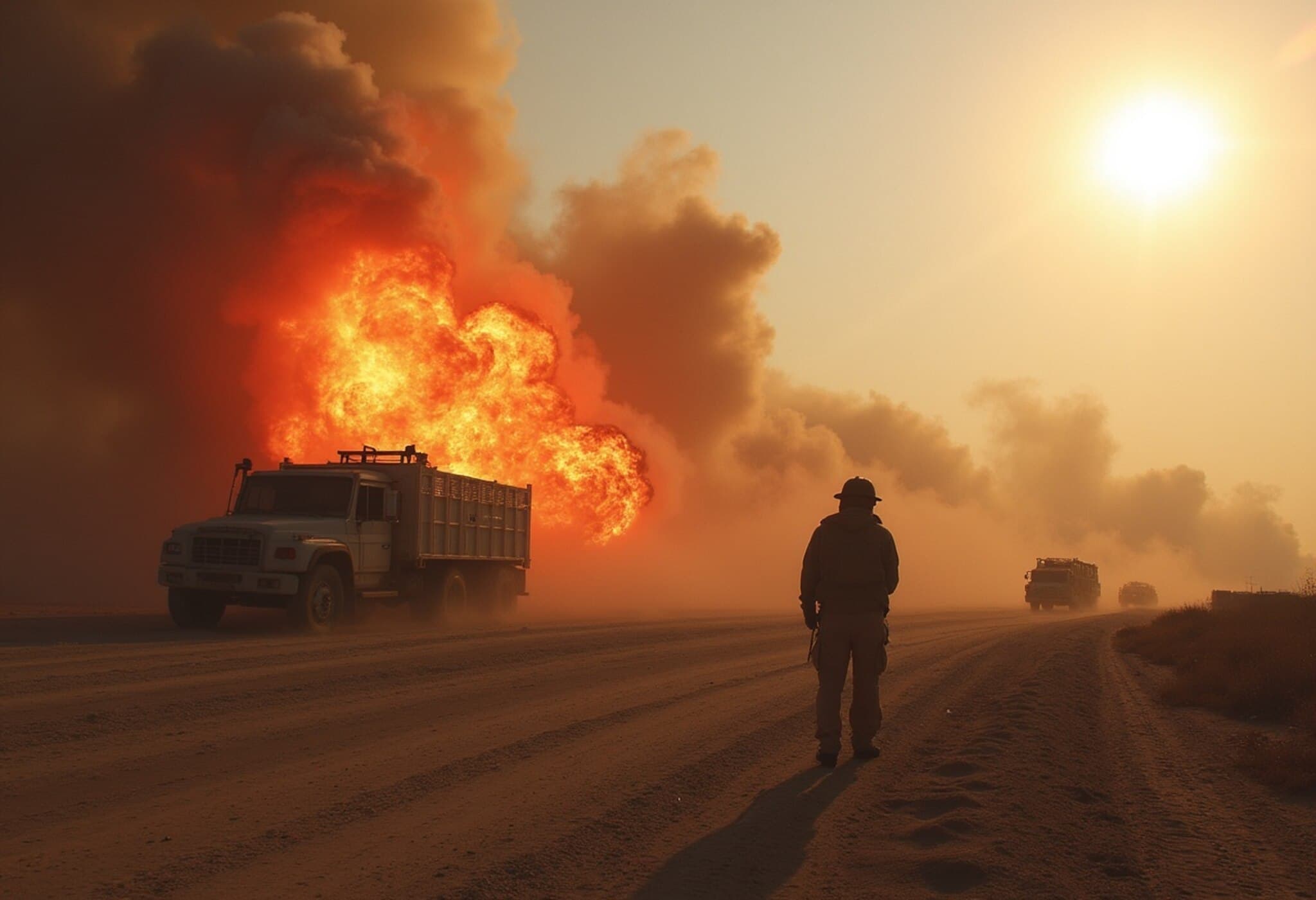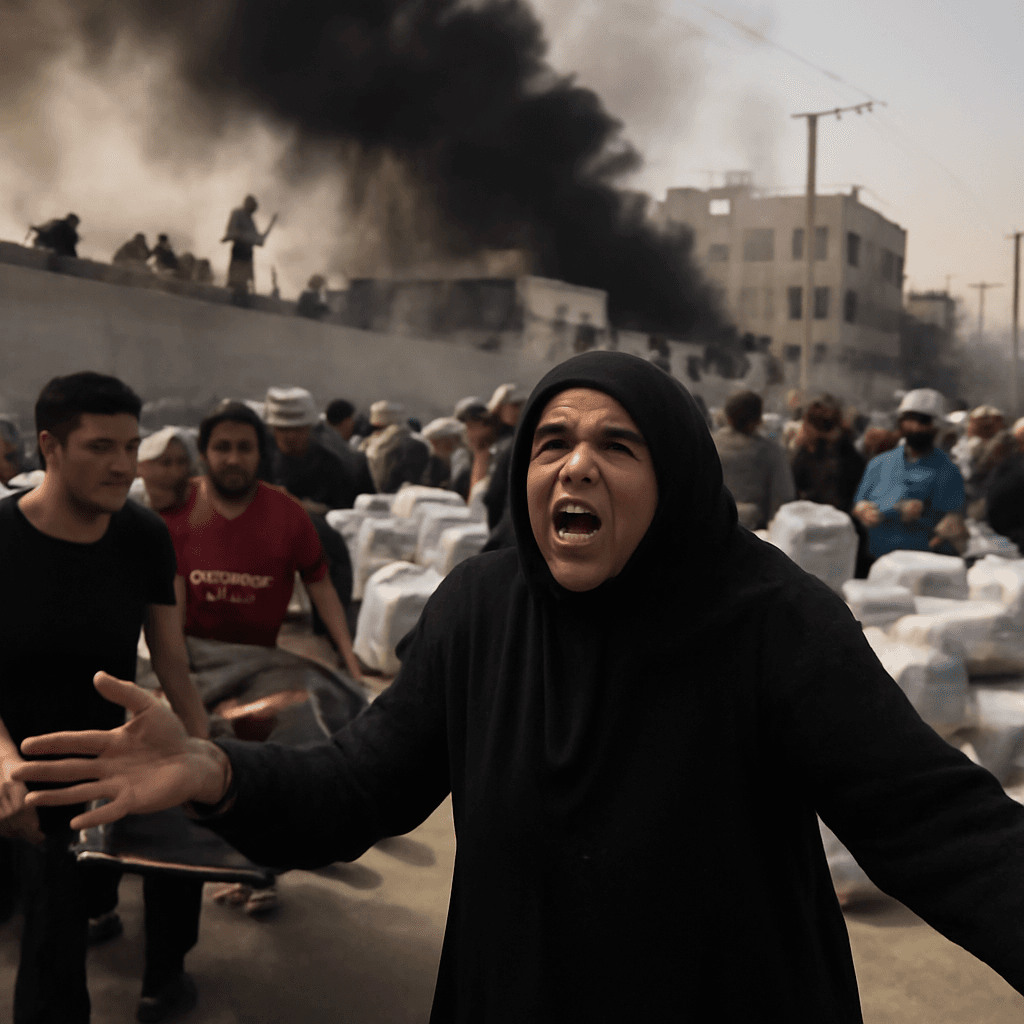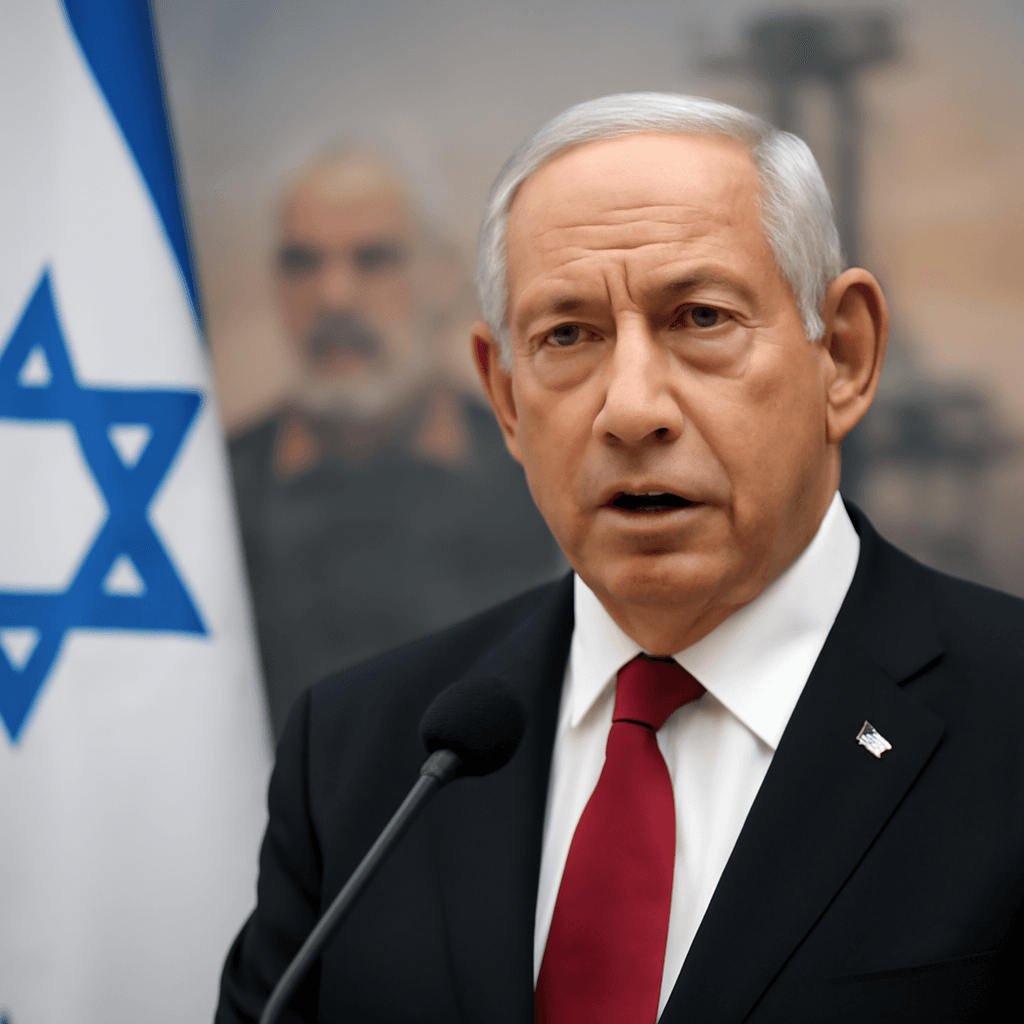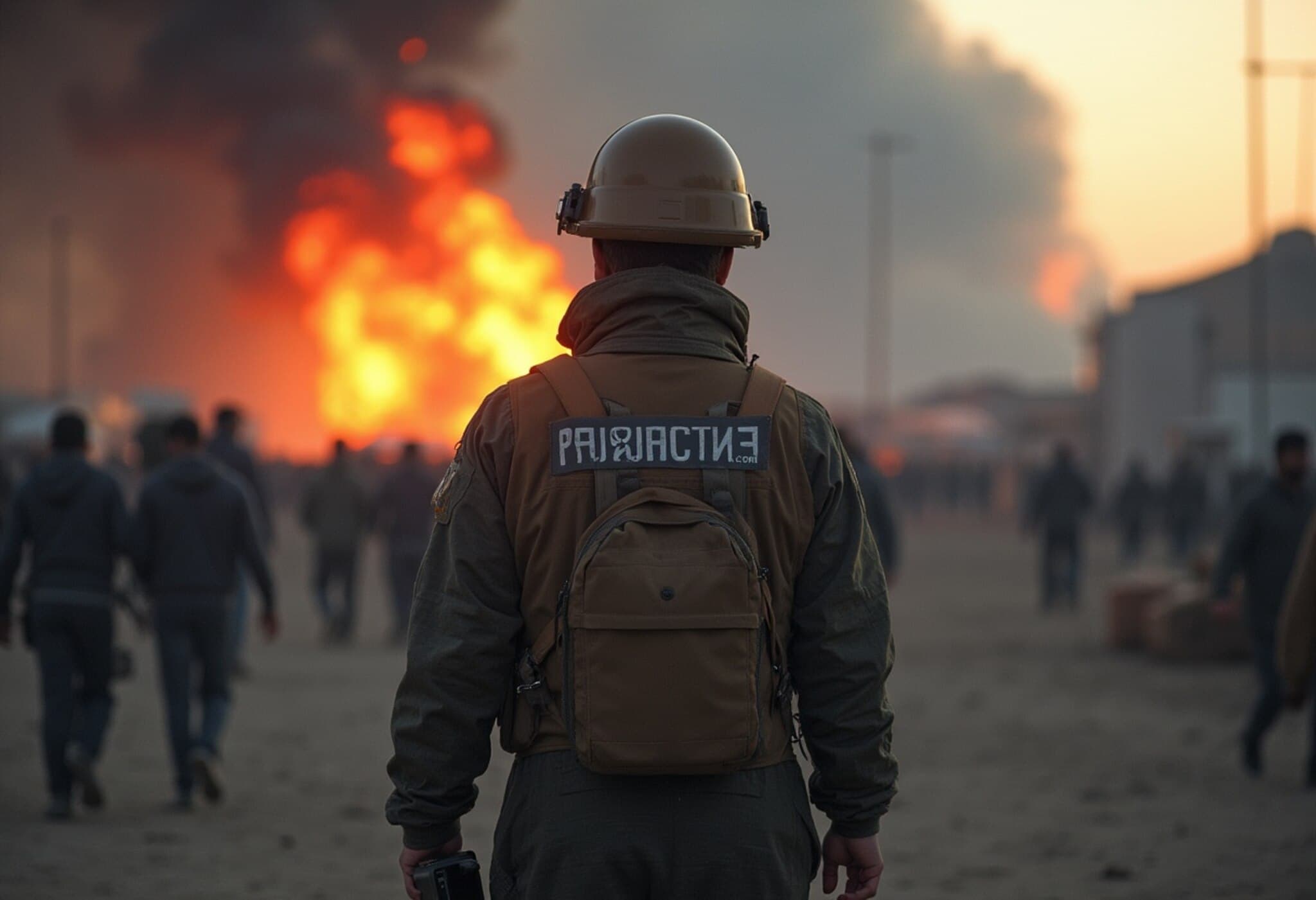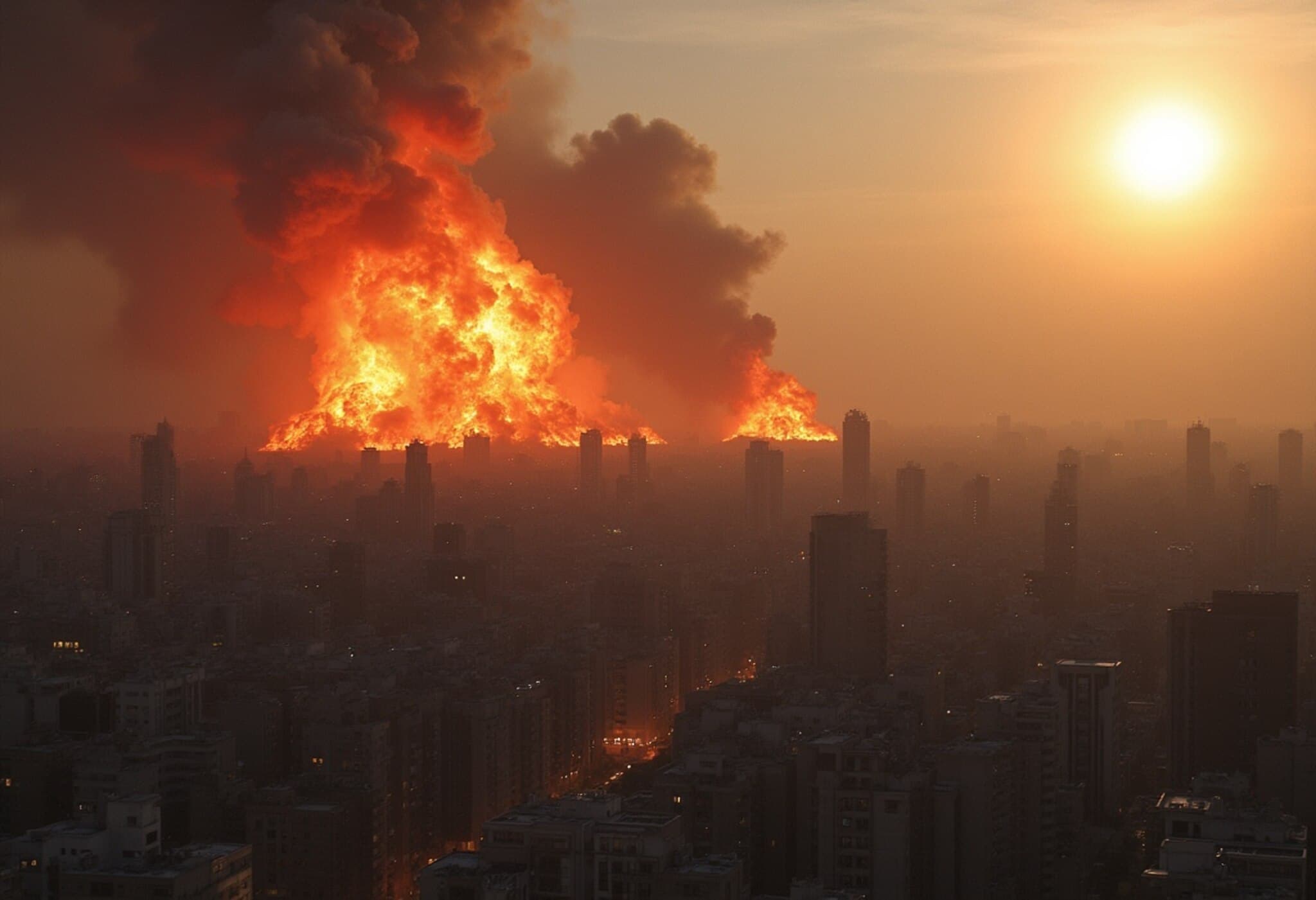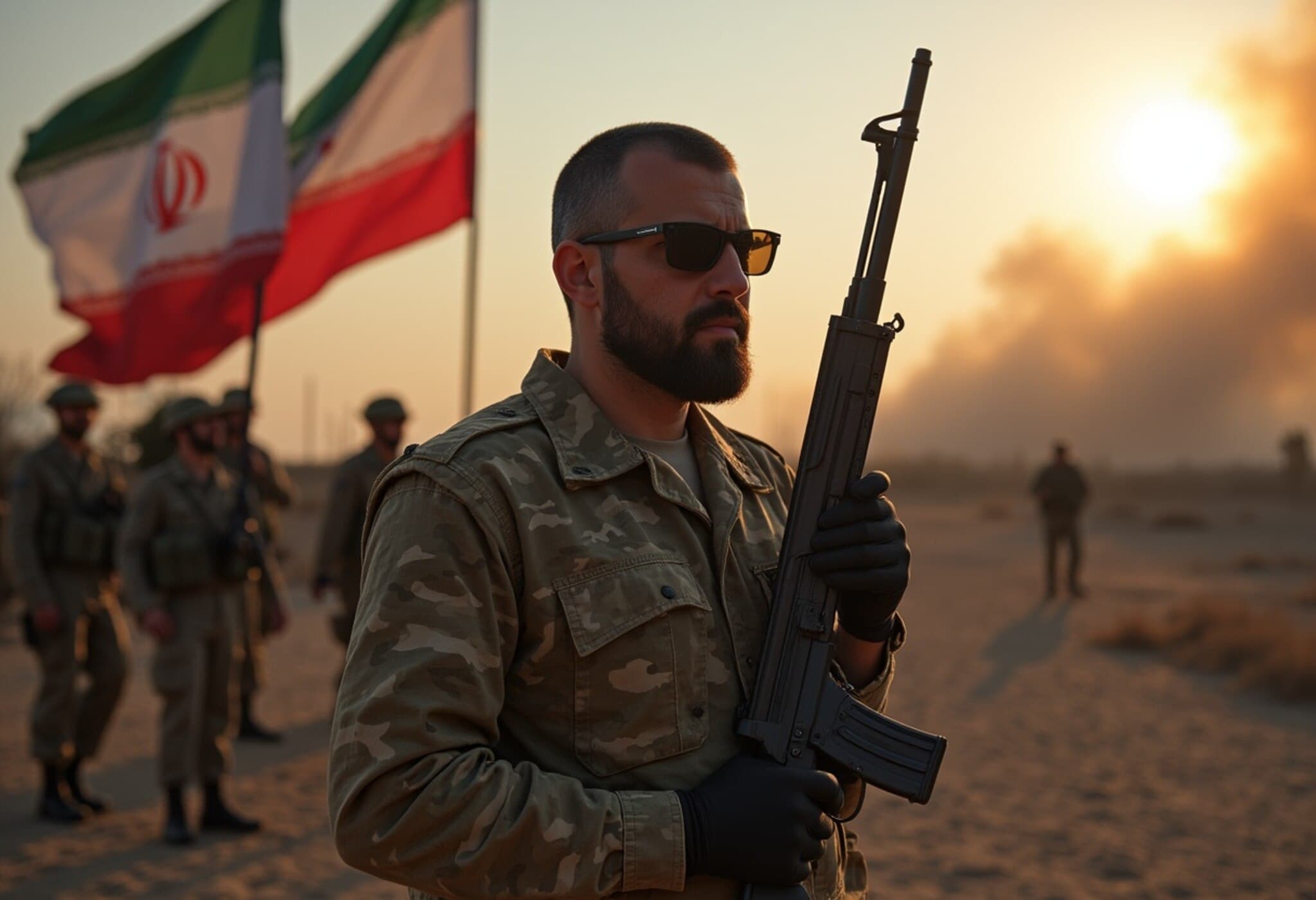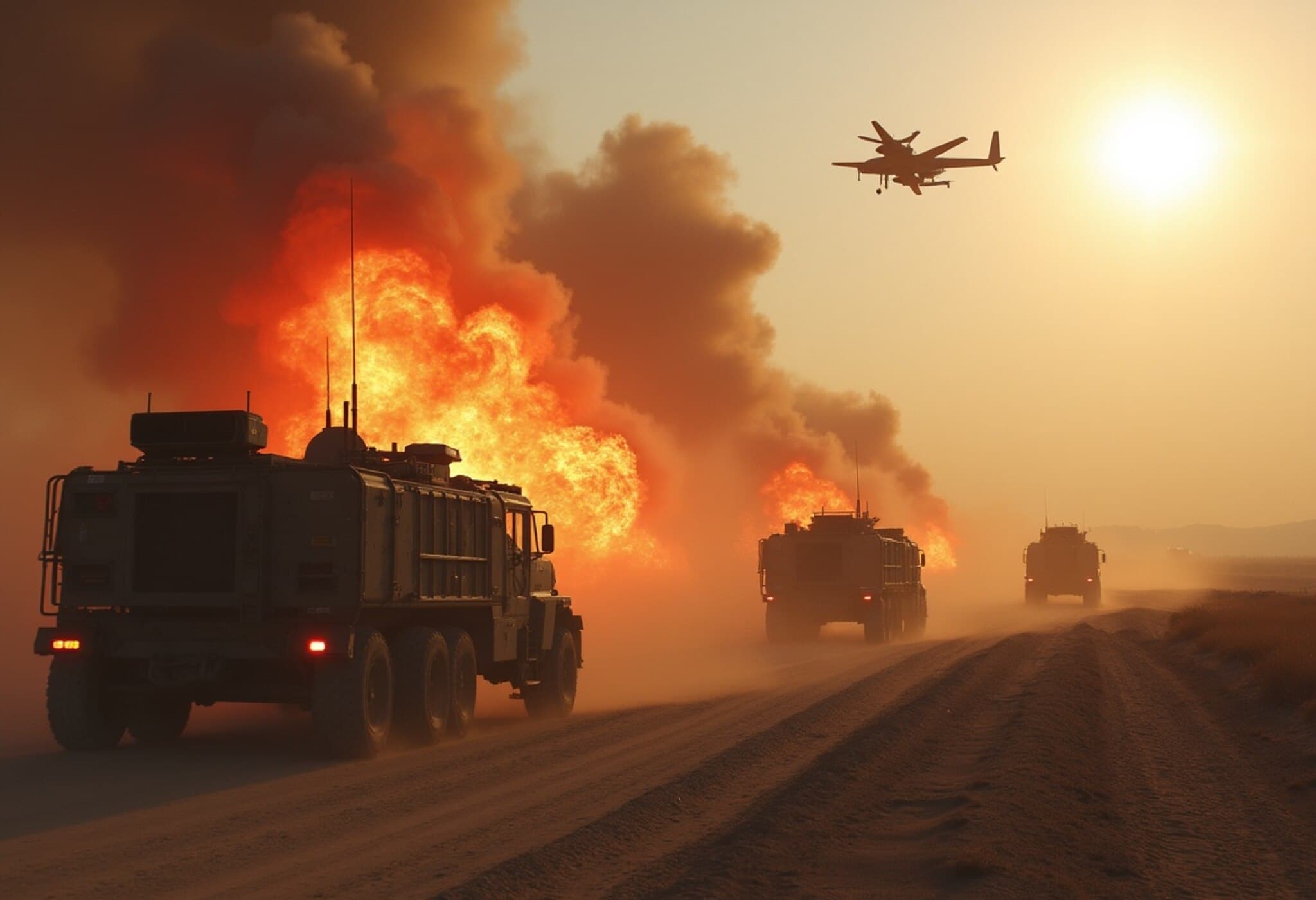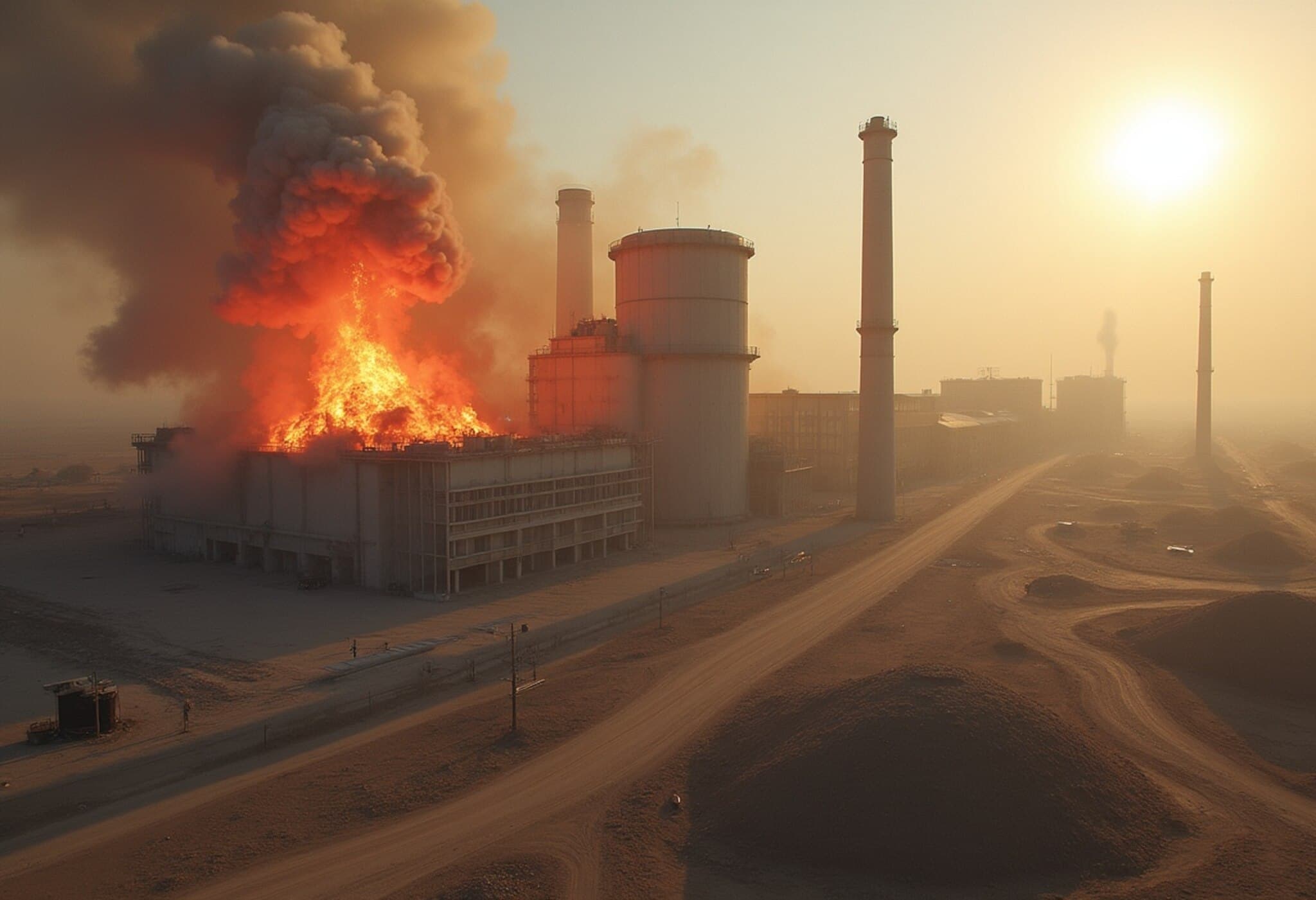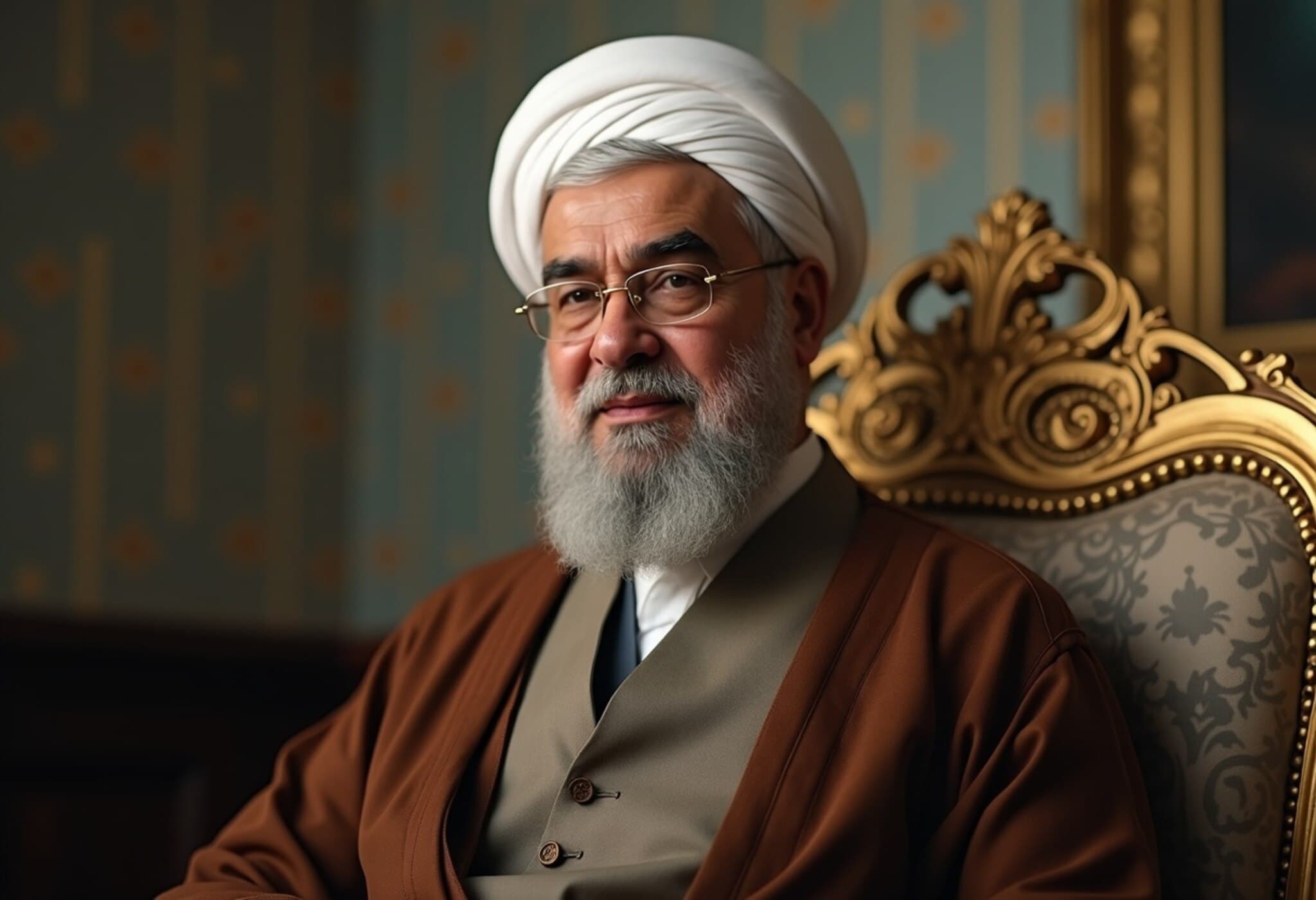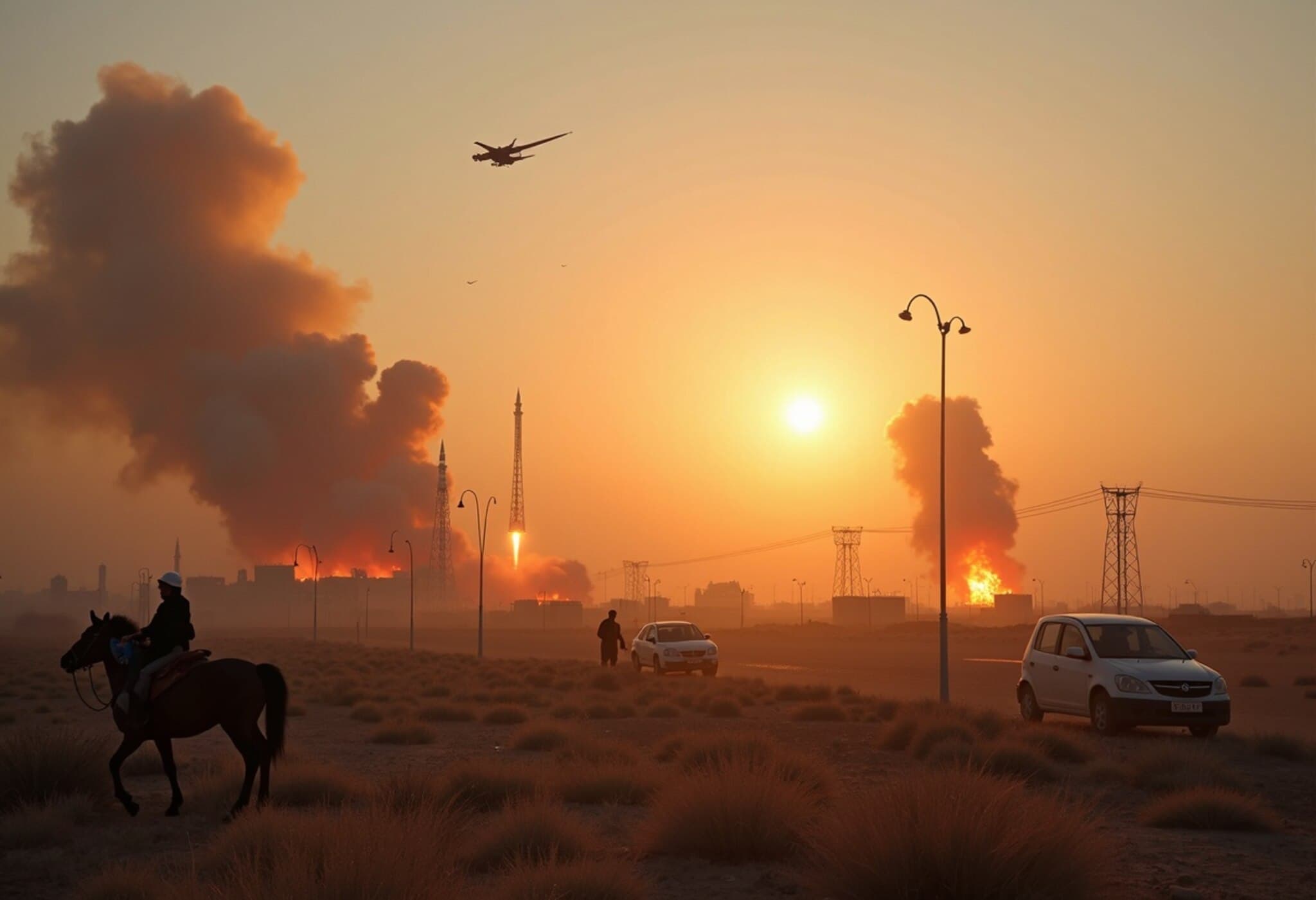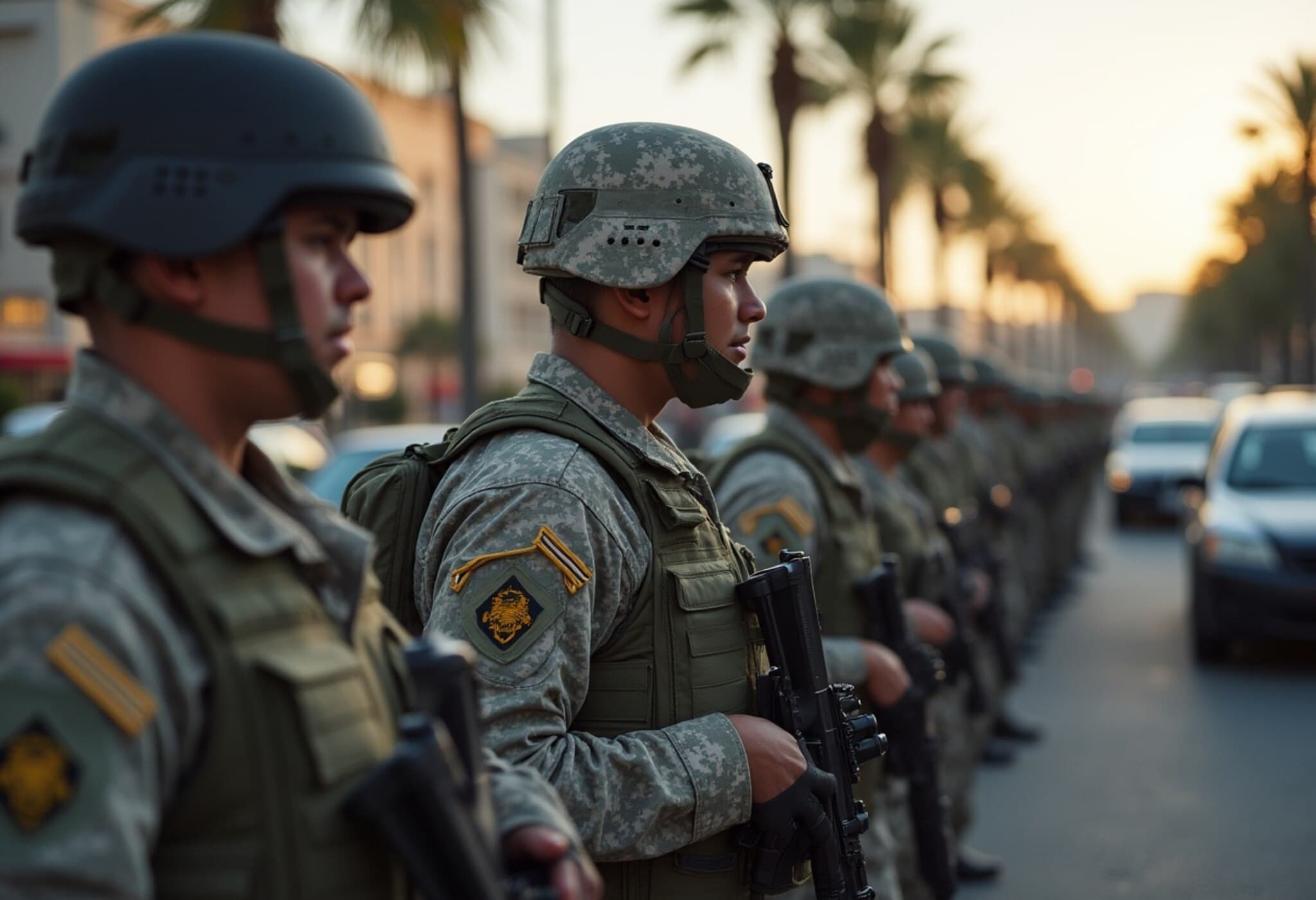Israel's Operation Rising Lion Strikes Key Iranian Nuclear Site
In a significant escalation of regional tensions, Israel launched a precise military operation against Iran, targeting its nuclear and ballistic missile programs. The offensive, dubbed Operation Rising Lion, included strikes on Iran's principal uranium enrichment site in Natanz as well as Iranian scientists involved in nuclear weapon development.
What Was Targeted?
Prime Minister Benjamin Netanyahu confirmed the strikes focused on the heart of Iran's nuclear ambitions, specifically:
- The uranium enrichment facility at Natanz, central to Iran’s nuclear fuel and potential weapons program.
- Key nuclear scientists involved in Iran's atomic bomb research.
- The country's ballistic missile infrastructure, which Israel asserts could soon carry nuclear warheads.
According to official reports from Iran, an explosion accompanied by thick black smoke was observed at the Natanz site, sparking international concern regarding the operation's implications. The strikes also reverberated through Tehran in the early morning hours with loud blasts.
Why Natanz?
The Natanz complex is arguably Iran’s most critical nuclear site, operating thousands of centrifuges used for uranium enrichment. While this process can provide fuel for civilian nuclear power, higher enrichment levels can yield weapons-grade material. Its prominence has made Natanz a focal point for international inspections, sanctions, and covert sabotage efforts over the past decade.
The site has endured previous disruptions, from the infamous Stuxnet cyberattack in 2010 to mysterious explosions damaging centrifuge assembly lines, reaffirming its strategic importance in Iran's nuclear program.
Other Nuclear Facilities in Iran
Beyond Natanz, Iran operates and develops several notable nuclear sites:
- Fordow: A fortified enrichment site built deep inside a mountain near Tehran.
- Bushehr: The country's only operational commercial nuclear power plant located near the Persian Gulf.
- Arak: A heavy water reactor which poses proliferation concerns due to plutonium production.
- Isfahan Nuclear Technology Center: A hub for research and development supporting Iran’s nuclear program.
The Stakes and Broader Implications
Israel's government underscored that the strikes aim to neutralize an "intolerable threat" to its existence, stressing that Iran’s expanding ballistic missile arsenal could soon be nuclear-capable. Netanyahu highlighted that Iran intends to produce up to 10,000 ballistic missiles within three years, capable of delivering devastating payloads.
Israel also cited Iran's strategy of surrounding the country with proxy forces and directly attacking Israeli targets as justification for the offensive.
The attack follows growing international unease after Iran was censured by the International Atomic Energy Agency for obstructing inspections. Iran's reaction included plans to open a third enrichment site and upgrade centrifuges—a move seen as provocative by Israel and its allies.
Global Reactions and Market Impact
The United States reaffirmed its commitment to protect its forces in the region while referring to Israel's strikes as unilateral acts of self-defense. Meanwhile, global oil markets swiftly reacted, with crude prices surging over 2% amid fears of further instability.
Looking Ahead
Israel has pledged to continue its campaign "for as many days as it takes" to dismantle the nuclear threat. The operation marks a dramatic chapter in the ongoing struggle over Iran’s nuclear ambitions, intertwining military action with diplomatic pressure and covert operations.
As tensions escalate, the prospects for regional stability remain uncertain, with global powers closely watching developments and their potential ripple effects across international security and energy markets.

